Stem Cell
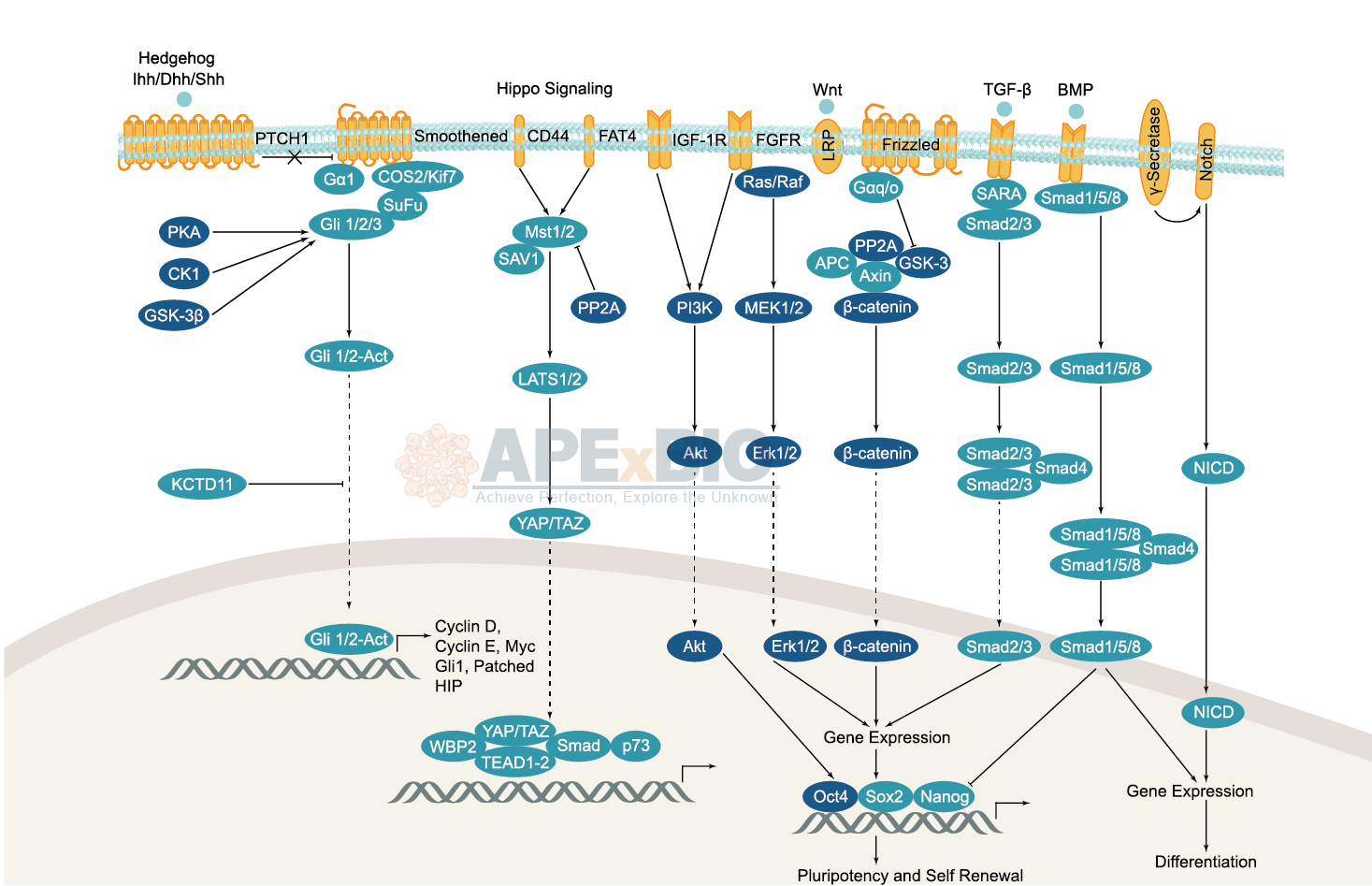
In ESC, BMP/TGF-β signaling pathway plays a key role in maintaining pluripotency and self-renewal. It signals through Smad proteins, and the FGF signaling pathway, which activates the MAPK and Akt pathways. The Wnt signaling pathway also promotes pluripotency. OCT-4, SOX2, and NANOG are three main transcription factors that are expressed and activated by these pathways. Induced pluripotent stem cells (iPSC) are pluripotent cells that can be generated from differentiated cells with forced expression of specific reprogramming factors. Both ESC and iPSC can be induced to develop into distinct cell types that associated with three primary germ layers: ectoderm, mesoderm and endoderm. Signaling pathways that control the development of these cell lineages, including BMP/TGF-β, Notch, Wnt/β-catenin, Hedgehog and Hippo pathways, which regulate cell division, growth and differentiation. Defects in stem cell signaling are related to developmental disorders and cancer.
-
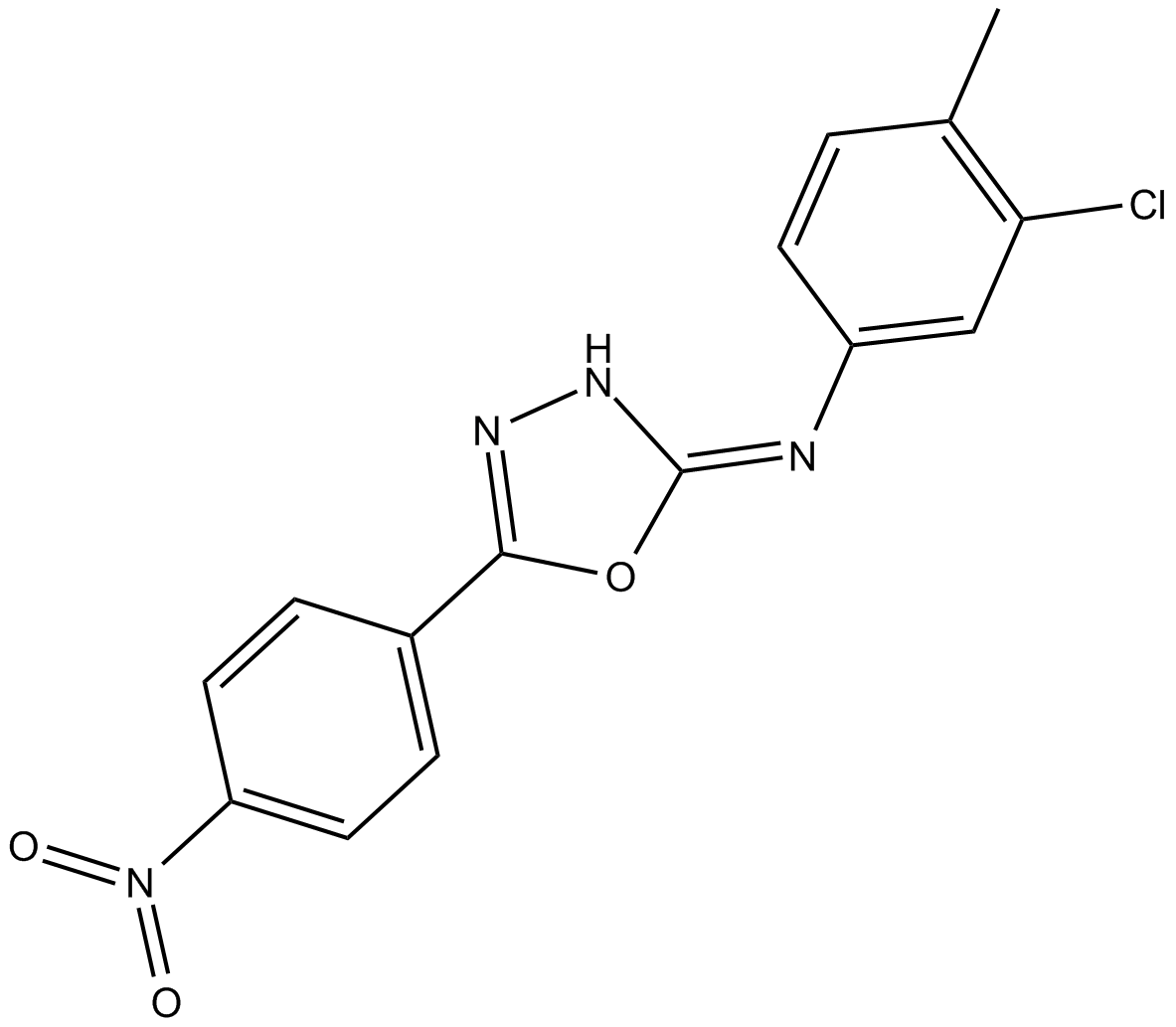 B5561 TC-G 24Summary: GSK-3β inhibitor
B5561 TC-G 24Summary: GSK-3β inhibitor -
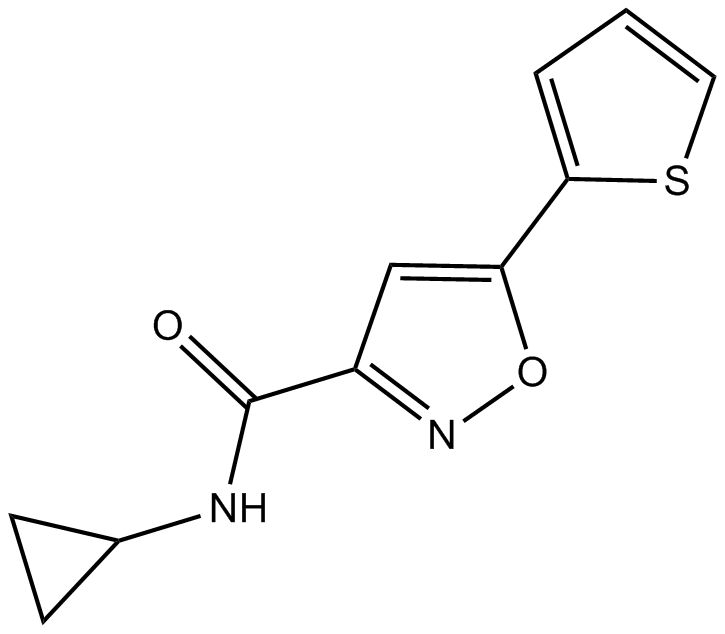 B5596 ISX 9Summary: neurogenic agent
B5596 ISX 9Summary: neurogenic agent -
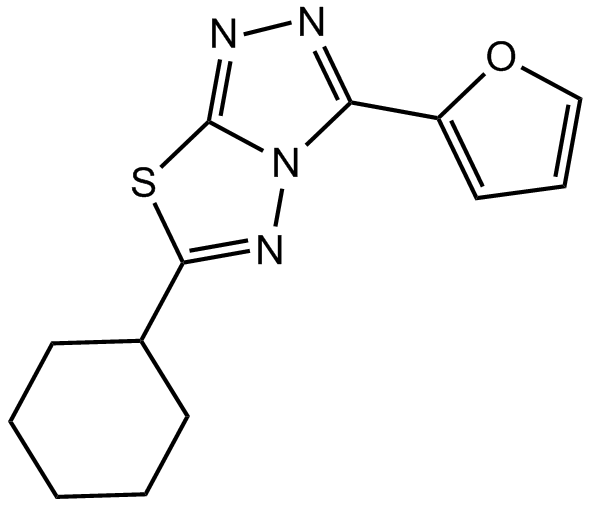 B5614 Cardionogen 1Summary: Wnt signaling modulator
B5614 Cardionogen 1Summary: Wnt signaling modulator -
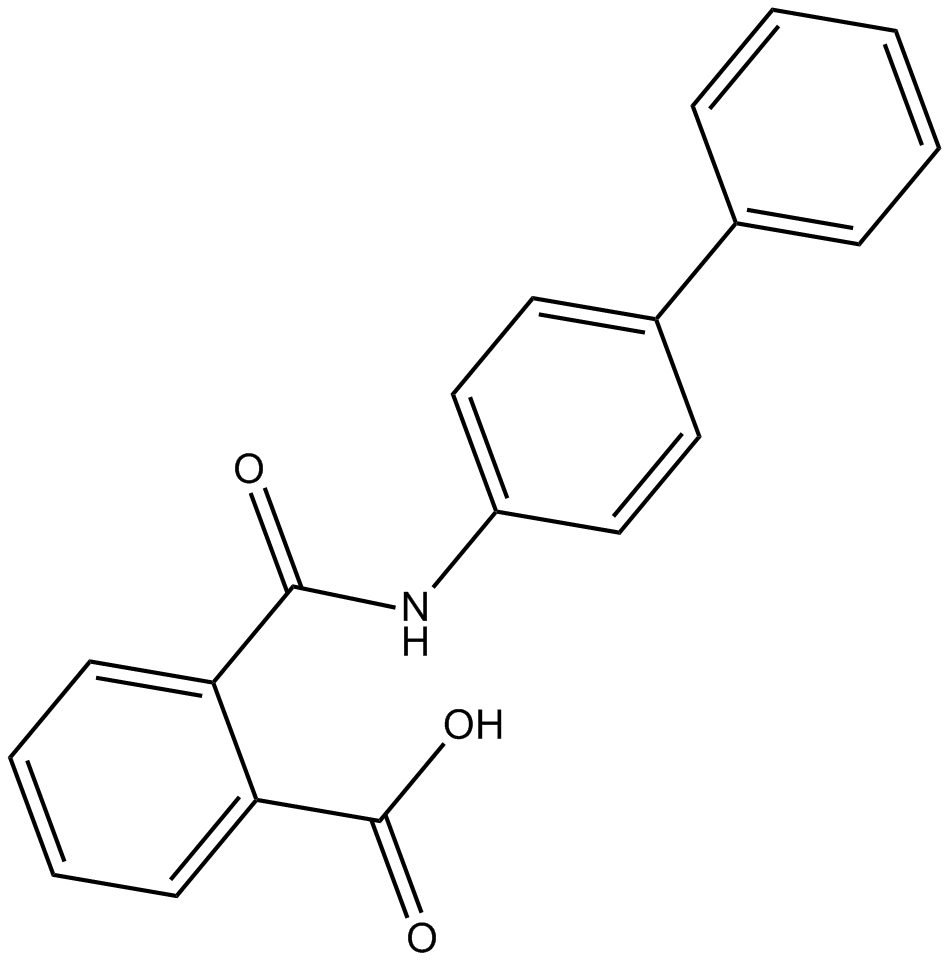 B5626 KartogeninSummary: induces differentiation of human mesenchymal stem cells into chondrocytes
B5626 KartogeninSummary: induces differentiation of human mesenchymal stem cells into chondrocytes -
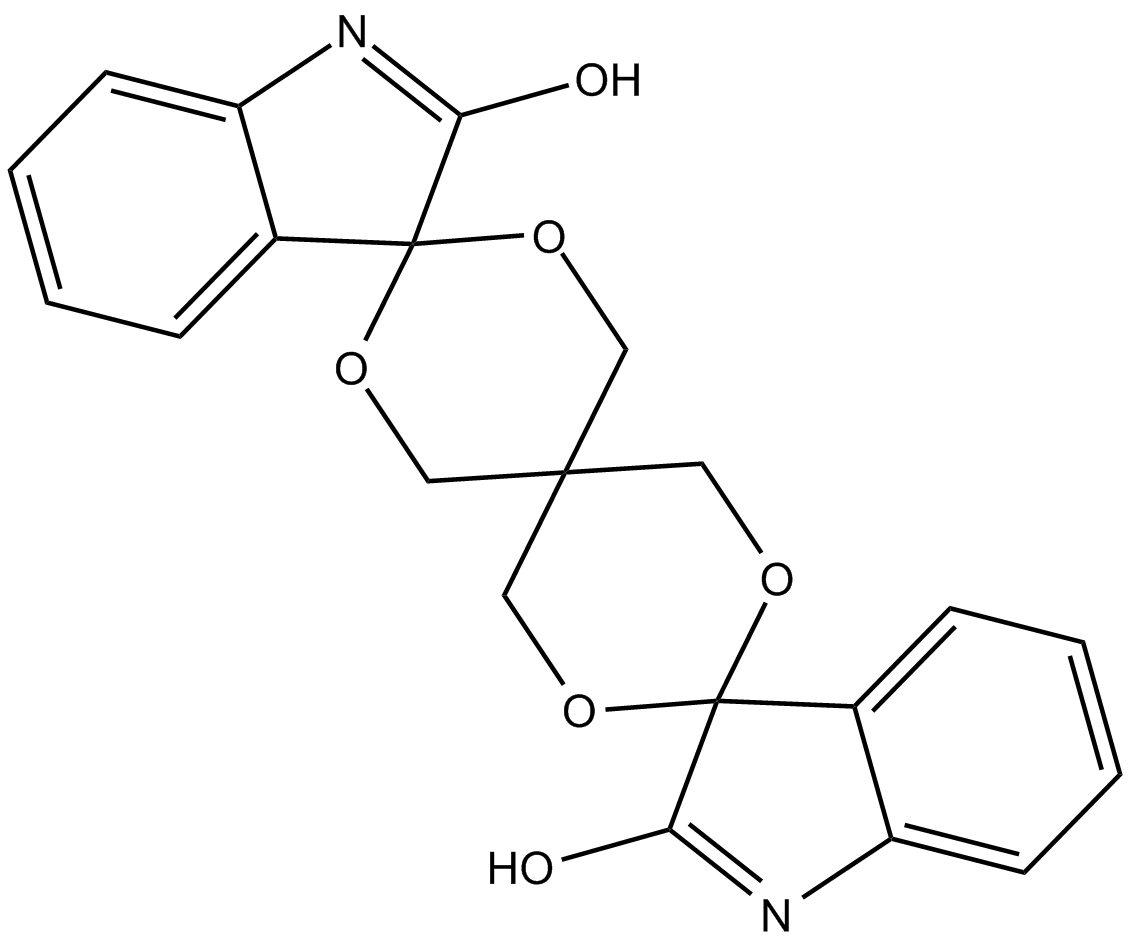 B5671 JW 67Summary: inhibitor of canonical Wnt pathway signaling
B5671 JW 67Summary: inhibitor of canonical Wnt pathway signaling -
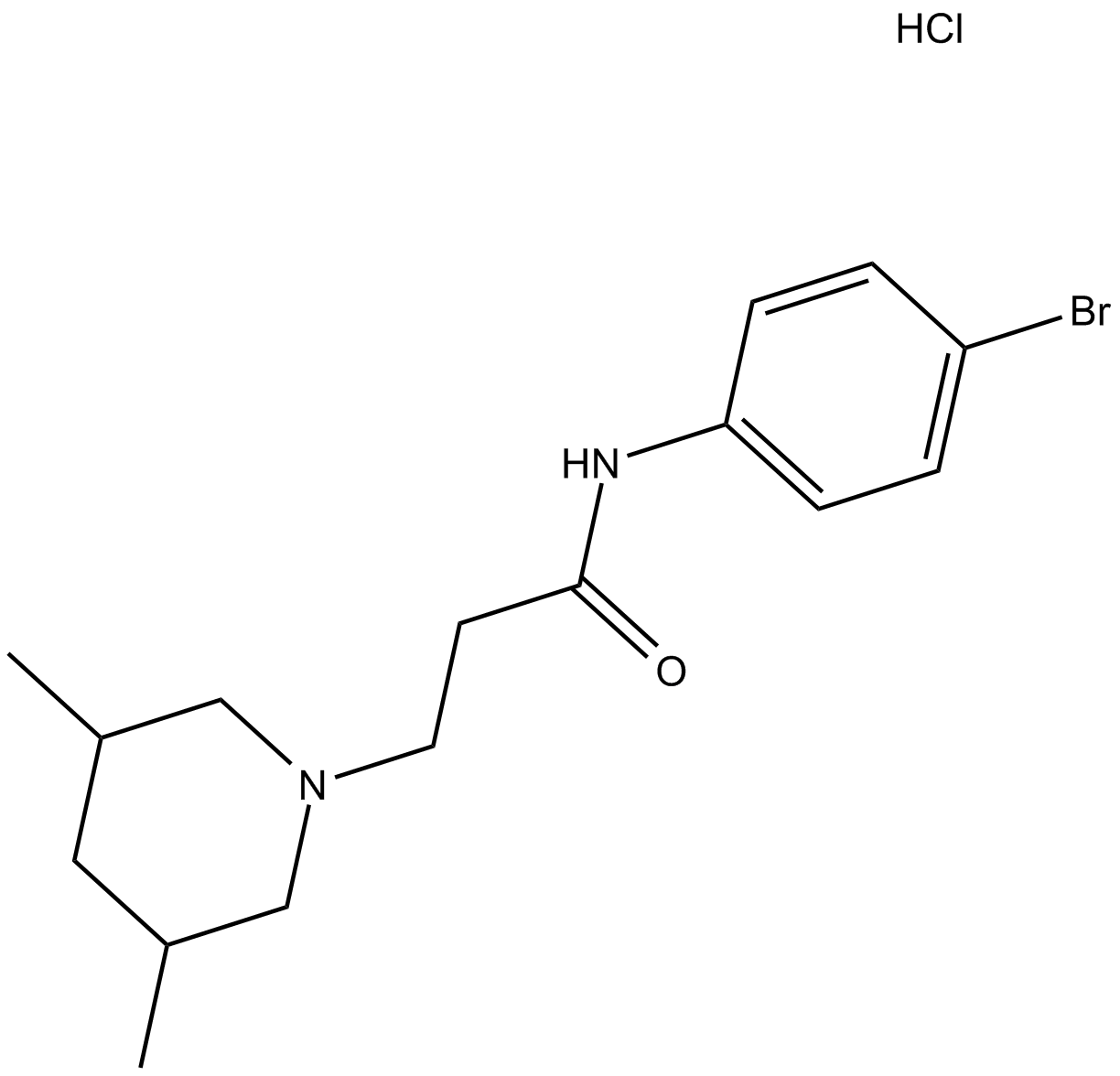 B5674 SMANT hydrochlorideSummary: Smoothened (Smo) signaling inhibitor
B5674 SMANT hydrochlorideSummary: Smoothened (Smo) signaling inhibitor -
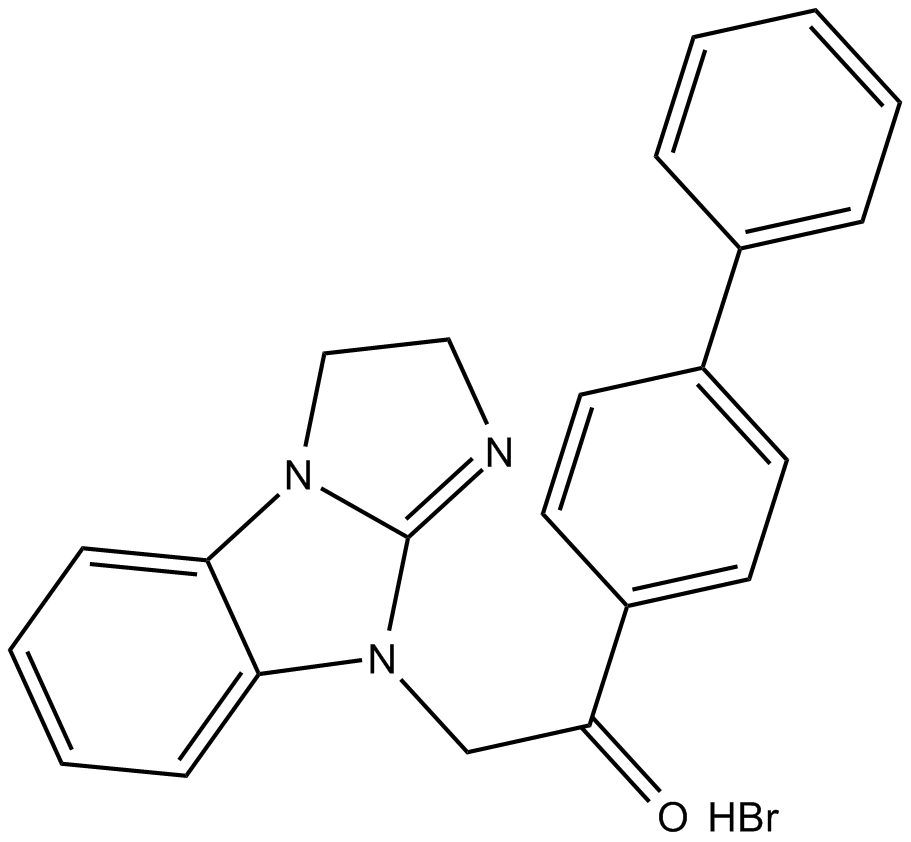 B5679 CCT 031374 hydrobromideSummary: inhibits TCF-dependent transcription, blocks BIO-induced β-catenin stabilization
B5679 CCT 031374 hydrobromideSummary: inhibits TCF-dependent transcription, blocks BIO-induced β-catenin stabilization -
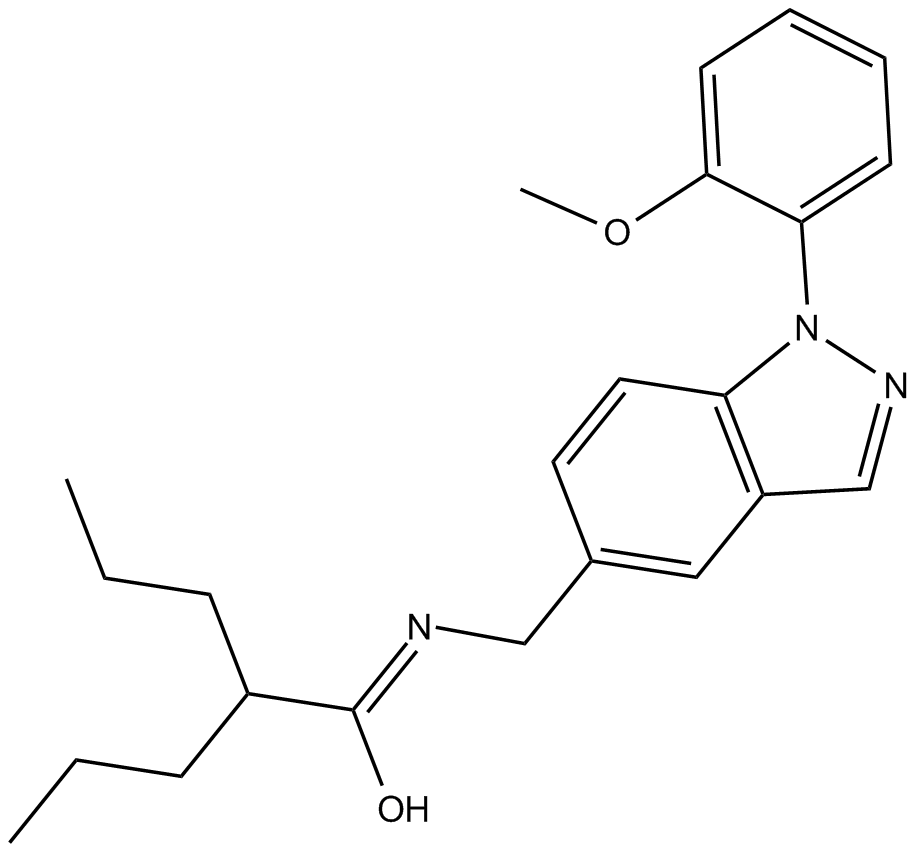 B5766 M 25Summary: Smoothened (Smo) receptor antagonist
B5766 M 25Summary: Smoothened (Smo) receptor antagonist -
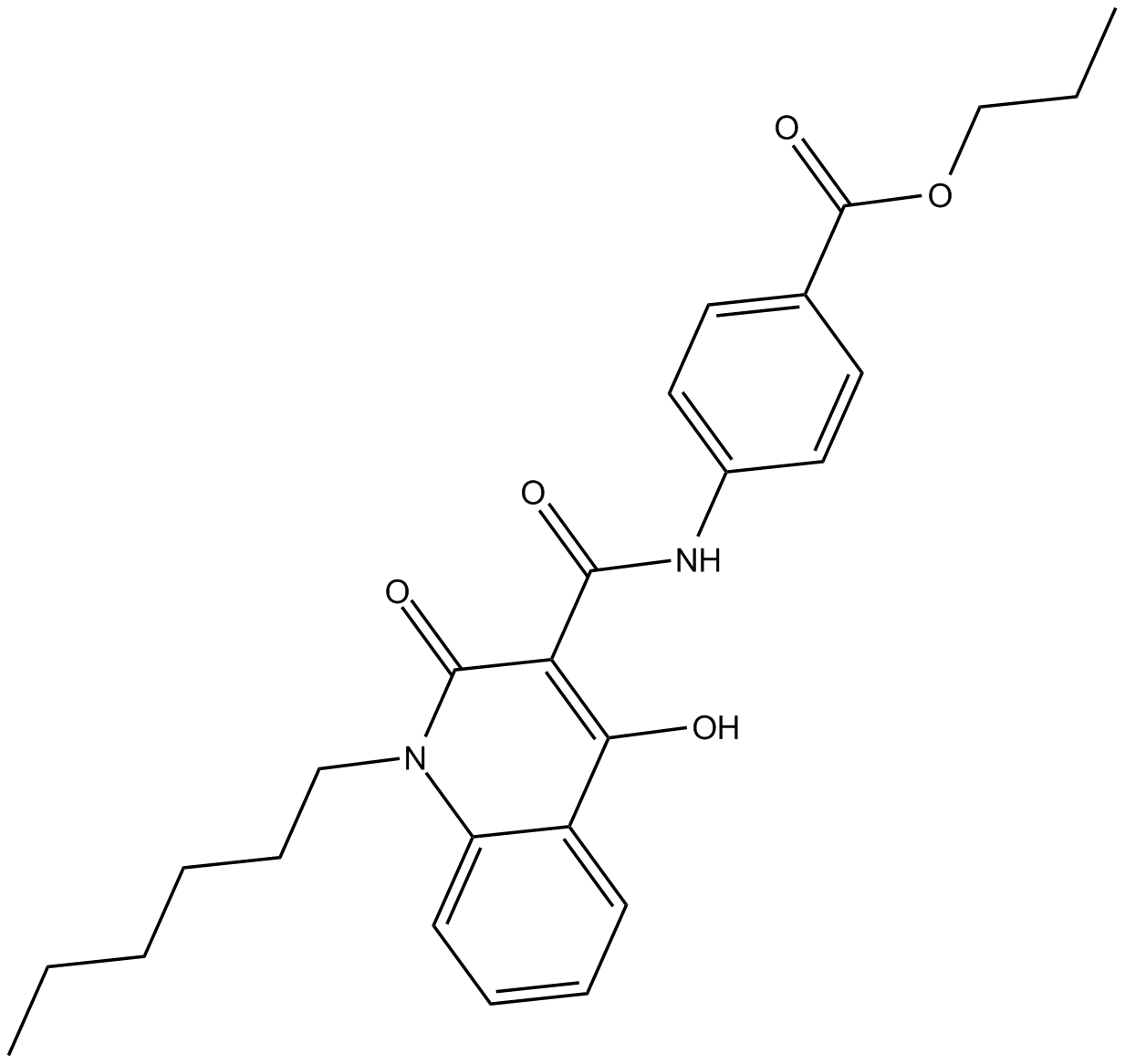 B5767 GSA 10Summary: Smoothened (Smo) receptor agonist
B5767 GSA 10Summary: Smoothened (Smo) receptor agonist -
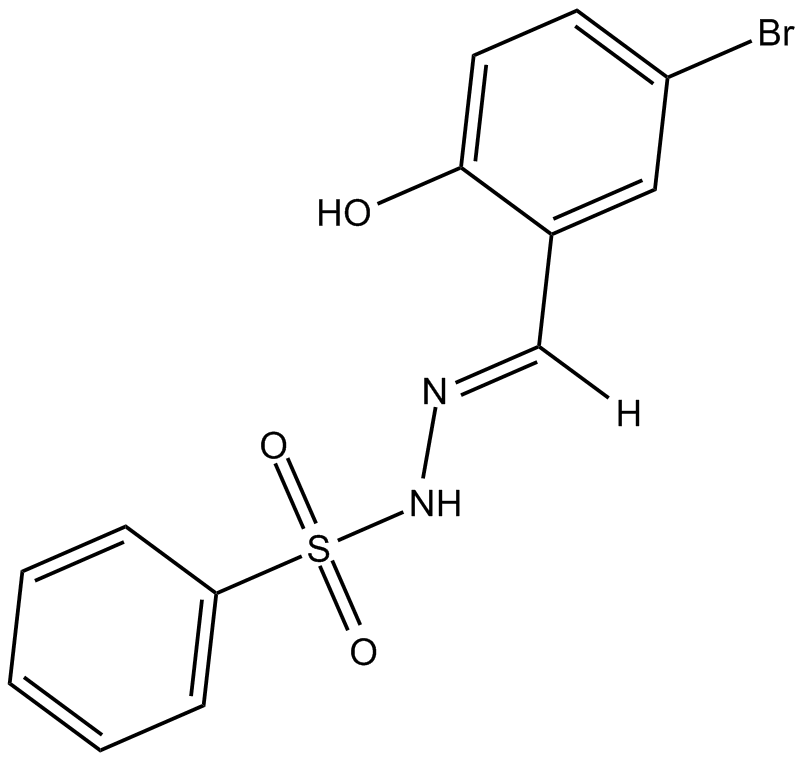 B5772 Shz 1Summary: induces phenotypic differentiation
B5772 Shz 1Summary: induces phenotypic differentiation

